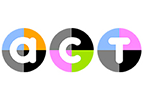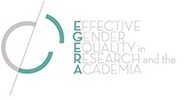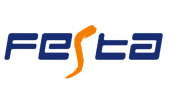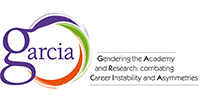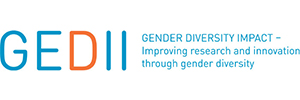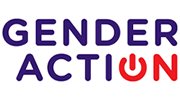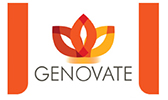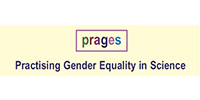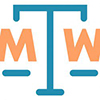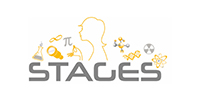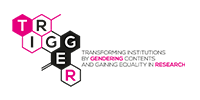Gender projects
In this section, you find Eu-originated projects and initiatives which aim to tackle gender inequality in academic institutions and research organisations.
ACT
ACT is a H2020 project that seeks to advance gender equality at universities and research centres by facilitating collaboration between experienced institutions in the implementation of gender equality plans with less experienced ones. It aims at addressing common needs and improving assessment on gender equality in HE & R&I regarding three fields: career progression, decision-making positions, and research content and teaching.
EIGE
The European Institute for Gender Equality (EIGE) is an autonomous body of the European Union, established to contribute to and strengthen the promotion of gender equality, including gender mainstreaming in all EU policies and the resulting national policies, and the fight against discrimination based on sex, as well as to raise EU citizens’ awareness of gender equality.
EGERA
The EU-funded project EGERA intended to develop a shared culture of gender equality in research and the academia and promote a full set of measures to achieve gender equality. EGERA is a tool for achieving two overarching objectives:
1) Gender equality in research and higher education and
2) Bringing a gender perspective in research contents and outputs
FESTA
The EU-funded structural change project FESTA, aimed to encourage female researchers to stay and make a career in the academy and to create organizational environments where their competence is valued and fostered. It developed a Toolkit with practical insights, examples and indicators in aim to translate these figures into awareness.
GARCIA
The EU-funded project GARCIA aimed at promoting a gender culture within different organizational levels in various European research institutions, with a specific focus on the early stages of academic and scientific careers. It produced a relevant Toolkit for Integrating Gender- Sensitive Approach into Research and Teaching.
GEDII
The Eu-funded project GEDII aimed improving research and innovation through gender diversity. Using innovative methods for the analysis of the diversity-research productivity relationship, GEDII developed a reliable diversity measure that is sensitive to power, status and information sharing differentials within teams and across public & private organizations.
GENDER-NET
The EU-funded project GENDER-NET aimed to provide a strategic networking and cooperation framework for national/regional actors. Engaging EU Member States & associated countries into modernising their institutions by implementating gender equality plans or equivalent initiatives and supporting coherent monitoring and reporting of progress with common indicators, were among its core aims.
GENDERACTION
The Eu-funded project GENDERACTION will create an innovative policy community for the implementation of the gender priority in the European Research Area (ERA) by setting up a network of representatives appointed by national authorities in 13 Member States (MS) and Associated Countries.
GenderTime
The aim of the EU-funded GenderTime project was to identify and implement the best systemic approach to increase the participation and career advancement of women researchers in selected institutions where self-tailored action plans are implemented. The project defined and developed a model for gender equality indicators in Universities and Research Institutions.
GENERA
GENERA is a H2020 project aiming at monitoring and improving the Gender Equality Plans of Research Institutions and Organisations specifically in the physics research field. Another major goal of GENERA is to contribute to overcoming the under-representation of women in physics research which is long-standing and persistent even if the prevailing cultures adopt the assumption of being ‘gender neutral’.
GenisLab
The EU-funded project GenisLab provides detailed instructions to carry out a Participatory Gender Audit (PGA). This methodology combines an objective observation of facts and data with a more in-depth and qualitative reflection on individual and collective rules, behaviours, and beliefs, as well as their impact on gender equality. The complete GenisLab guidelines and tools for institutional change are available.
GENOVATE
GENOVATE is a FP7-funded action research project which seeks to ensure equal opportunities for women and men by encouraging a more gender-competent management in research, innovation and scientific decision-making bodies, with a particular focus on universities.
GenPORT
The EU-funded project GenPORT, is a portal for gender and science resources serving a developing online community of practitioners. GenPORT covers natural sciences and social sciences & humanities.
INTEGER
In order to support Higher Education and Research Institutions in the assessment of their Transformational Gender Action Plans, the EU-funded project INTEGER developed a number of ready-to-use templates, to be used as tools, to support universities and research organisations in the assessment of their Gender Equality Plans.
LIBRA
The EU-funded project LIBRA brings together ten research institutes in life sciences based in ten European countries. The Consortium implemented a process of mutual learning that will finally lead to the design and implementation of ten harmonised and tailored Gender Equality Plans.
MORE3
The EU-funded project MORE3 have supported the European Commission (DG Research and Innovation) in the evidence-based policy development on the research profession in Europe. The project developed a relevant up-to-date and internationally comparable database with indicators and analysis focused on the mobility, career paths, working conditions and remuneration of researchers in Europe.
PLOTINA
The EU-funded project PLOTINA aims to enable the development, implementation and assessment of self-tailored Gender Equality Plans (GEPs) with innovative and sustainable strategies for the Research Performing Organizations (RPOs) involved. It provides a number of useful tools (audit tool, self-monitoring system, library of actions, good practice guide, case studies) for GEPs.
PRAGES
The EU-funded project PRAGES aimed at analysing existing practices to support universities and research institutes, both in European and non-European countries. It has developed two significant tools: a database of good practices and a set of guidelines, 'Guidelines for gender equality programmes in science'.
R&I PEERS
The R&I PEERS project will be based on the concept of gender equality, that can be expressed as “women and men enjoy the same status and have equal opportunity to realize their full human rights and potential to contribute to national, political, economic, social and cultural development, and to benefit from the results”.
STAGES
The EU-funded project STAGES, aims to launch structural change strategies addressing the multiple and interconnected layers of the problem of gender inequality in science. It provides some insightful recommendations to collect data and monitor gender equality.
SUPERA
The main aim of the SUPERA project is to implement 6 fully-fledged Gender Equality Plans in 6 organizations from Southern and Central Europe to articulate a structural understanding of gender inequalities, stereotypes and biases in research.
TRIGGER
TRIGGER aims at promoting systemic interventions designed to have deep, long lasting and widespread impacts at all the different levels in 5 research organisations.

